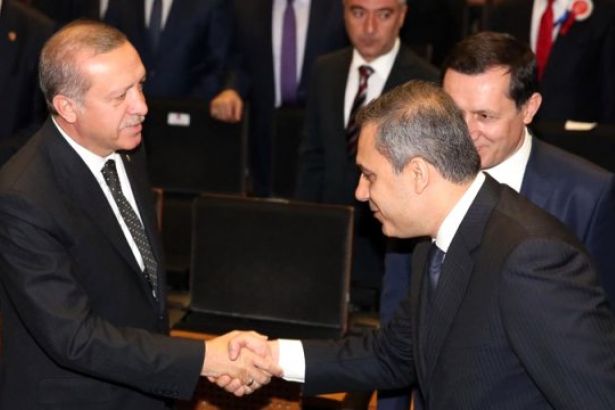Turkey parliament commission finds 'intelligence weaknesses' pre-coup

The head of a Turkish parliamentary investigative committee said Friday there was no question that U.S.-based Islamic preacher and ruling AKP party's ex-ally Fethullah Gülen was behind last year's failed military coup.
A cross-party commission including the main opposition Republican People's Party (CHP) was set up after a Turkish military faction tried to overthrow President Recep Tayyip Erdoğan and his AKP government last July.
Reşat Petek, a ruling Justice and Development Party (AKP) lawmaker, made the statement Friday while presenting the report of a committee charged with investigating the attempt.
"There was no doubt that there were intelligence weaknesses in not obtaining news of the coup attempt before" the ruling party-dominated committee. The commission's chairman Petek called for a review, looking at the problematic and inadequate points of the current intelligence structure.
However, Petek said an unidentified soldier from the army's aviation regiment provided information to the head of the spy agency, Hakan Fidan, relating to the coup.
The lawmaker said this was "one of the the most important factors" in the timing of the bid moving forward from July 16 at 3am (0000 GMT) to 8.30pm (1730 GMT) on July 15 because of undefined actions by the spy agency and military chief of staff.
The committee was set up two months after the attempted coup. It has been criticised for failing to question Turkey's military chief, who was taken hostage for several hours during the coup attempt, as well as the chief of the National Intelligence Agency. They are believed to hold crucial information on the failed coup.
Fethullah Gülen had been a close ally of then-Prime Minister Recep Tayyip Erdoğan, helping him to redesign and install his Islamic-rooted Justice and Development Party (AKP) in power in 2002.
Gülen and his Islamic network used politics to infiltrate high state organs by being close to the political power and ruling parties. His followers have infiltrated the military, police, judiciary and several ministries in Turkey over the years.
The Gülen religious sect ran a network of schools, dormitories and media organisations in Turkey and abroad.




